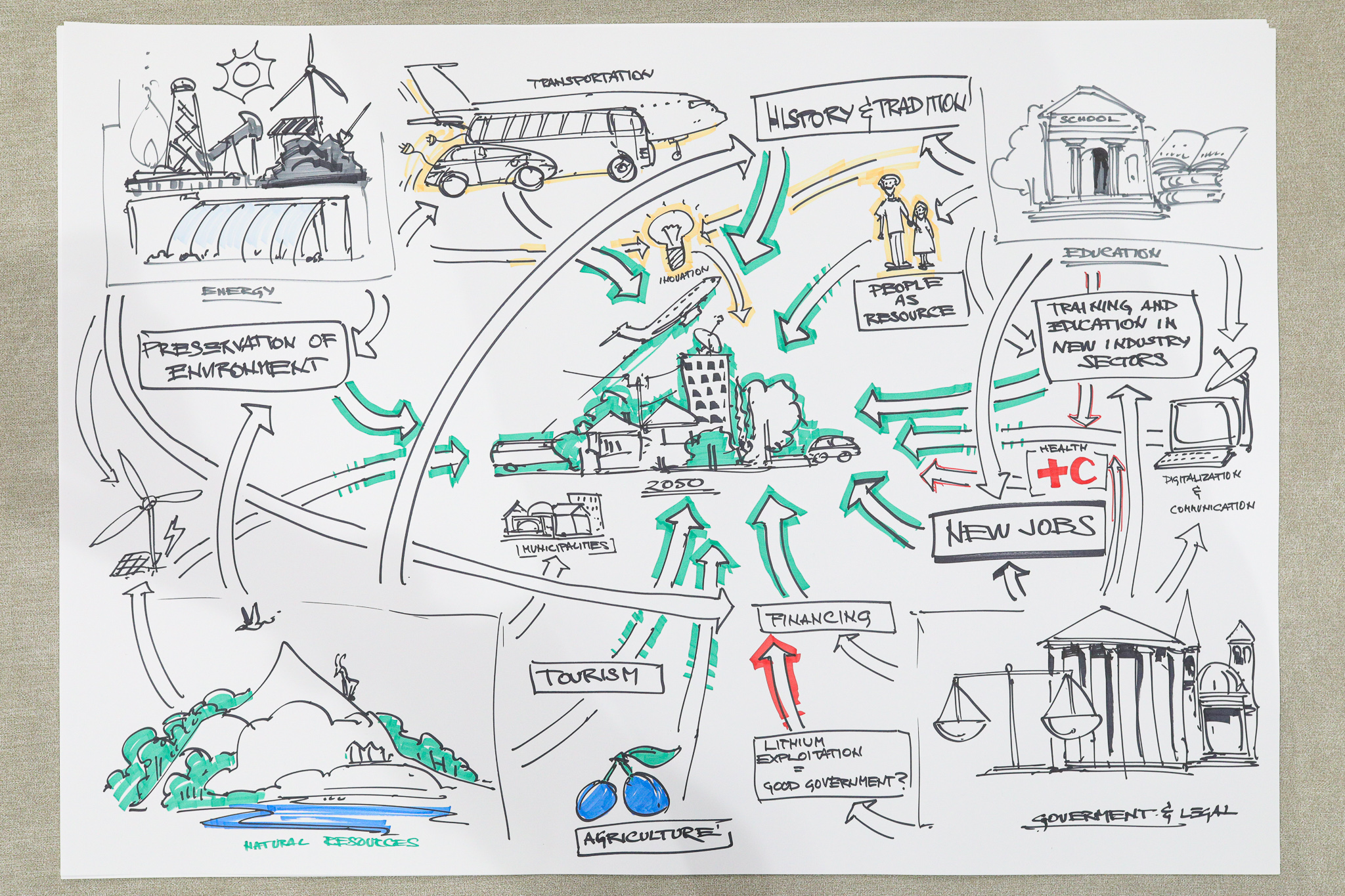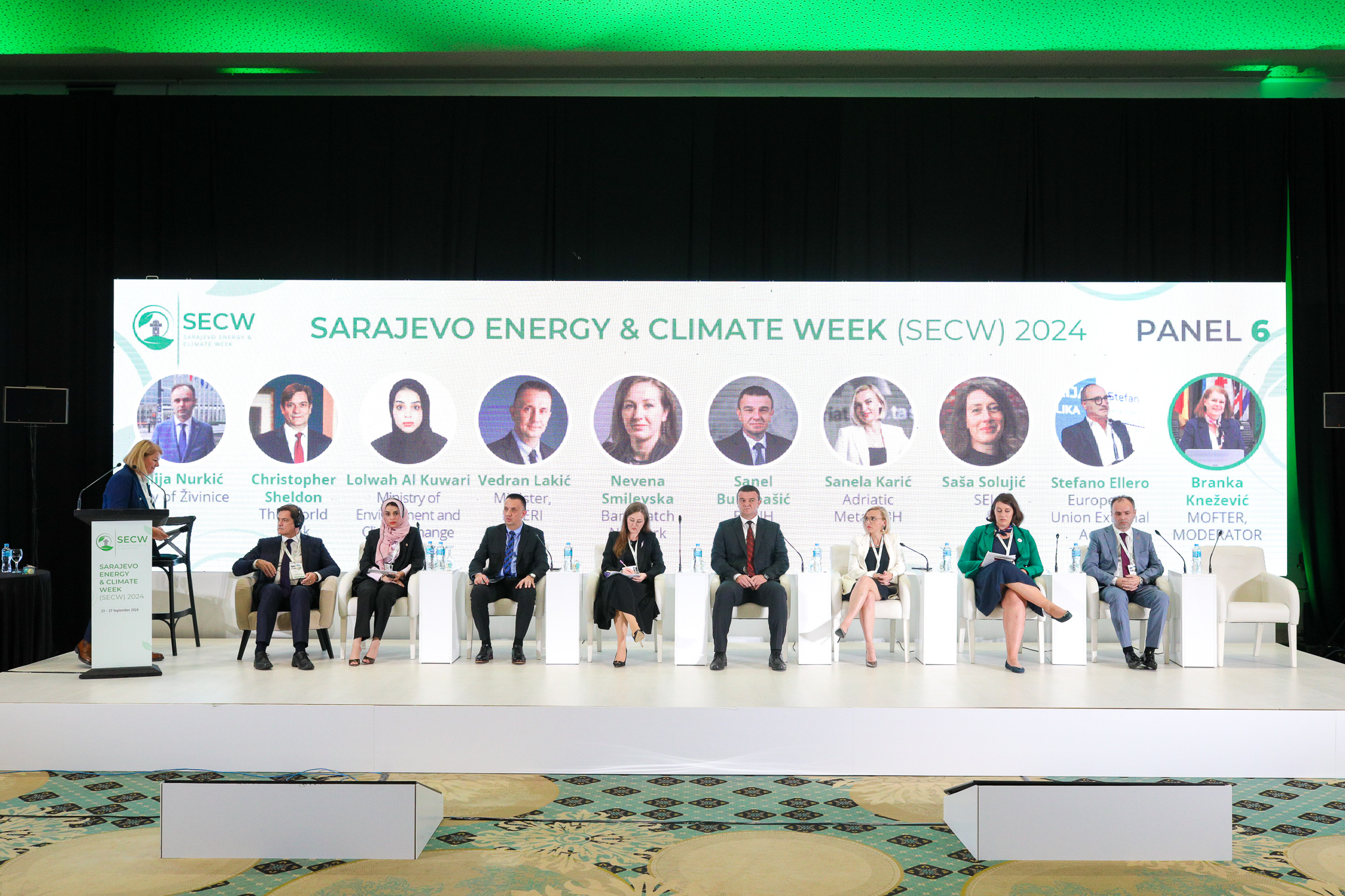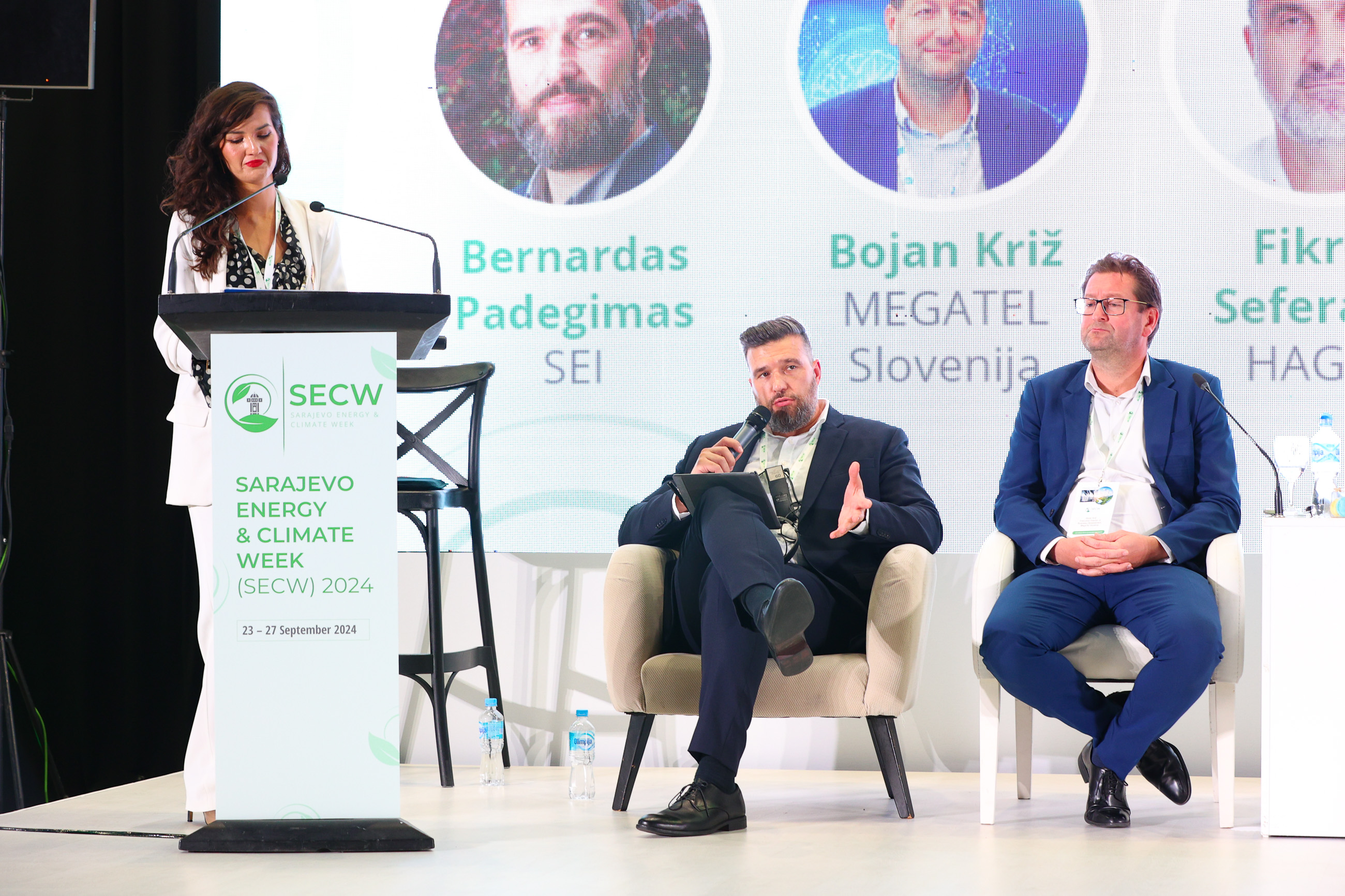 Illustration: Midhat Kapetanović. Photo: Jasmin Agovic
Illustration: Midhat Kapetanović. Photo: Jasmin Agovic
 Illustration: Midhat Kapetanović. Photo: Jasmin Agovic
Illustration: Midhat Kapetanović. Photo: Jasmin Agovic
BiH SuTra programme took an active role in the regional conference Sarajevo Energy and Climate Week (SECW), bringing together thought leaders, activists, and stakeholders in Sarajevo to address some of the most pressing energy and climate challenges.
BiH SuTra hosted a side event at SECW titled "BiH Sustainable Transition: World Café & Swedish Fika." Over coffee and traditional Swedish treats (so called “Swedish fika”), the programme shared its achievements from the past year and engaged participants in powerful discussions about the path forward for Bosnia and Herzegovina's sustainable transition.
.jpg)
The key takeaways from this session included:
During the conversation, Bosnian artist Midhat Kapetanović created a live visual representation of the session’s key points, helping to capture and communicate the insights shared during the event. See some of the photos and the video showcasing this visual process below.

Watch how the artist creates a visual presentation of the key conclusions from the event. Mr. Kapetanović helped convey the knowledge presented at the event through striking visual elements. Enjoy the video showing the process of creating this artwork!
A major highlight of SECW 2024 was a panel organized by the World Bank, focusing on creating a just transition with particular attention to local communities and pilot projects. BiH SuTra project manager Saša Solujić, participated as a panelist, sharing insights on the significance of stakeholder engagement in the transition process.
She emphasized that the concept of a just transition is not actually new—it dates back to the 1970s when stronger environmental regulations first came into play. She also underscored several critical factors for ensuring a just and inclusive transition:

Bernardas Padegimas, team lead of the environmental policy and strategy team at SEI headquarters, participated in the SECW panel titled "Strategic approach to the development of e-mobility in the private and public sectors with a focus on transport decarbonization". During the discussion, he emphasized Sweden's progress in electric vehicle (EV) adoption and the support Sweden is offering to Bosnia and Herzegovina in this area.
Sweden is on track to electrify its public transport, with the goal of making all public vehicles emission-free by 2030. Cities like Stockholm have already begun rolling out electric bus fleets, setting a strong example. Padegimas noted in the panel that BiH has significant potential to develop its own EV market by learning from countries like Sweden and neighbouring Slovenia through knowledge exchange.
It was also emphasized that Sweden remains committed to support BiH's decarbonization efforts, focusing on EV infrastructure, the electrification of public transport, and the integration of smart grid technologies as essential components of the sustainable mobility transition.

Overall, the Sarajevo Energy and Climate Week 2024 was a great platform for the BiH SuTra programme to discuss with partners about a just and inclusive energy transition, bringing to light the importance of local engagement, continuous planning, and social inclusion in the path towards sustainability.
Discover the News and Updates section, delivering the latest updates and insightful content across various topics. Stay informed with most recent news articles, reports, and publications, of the BiH SuTra project.